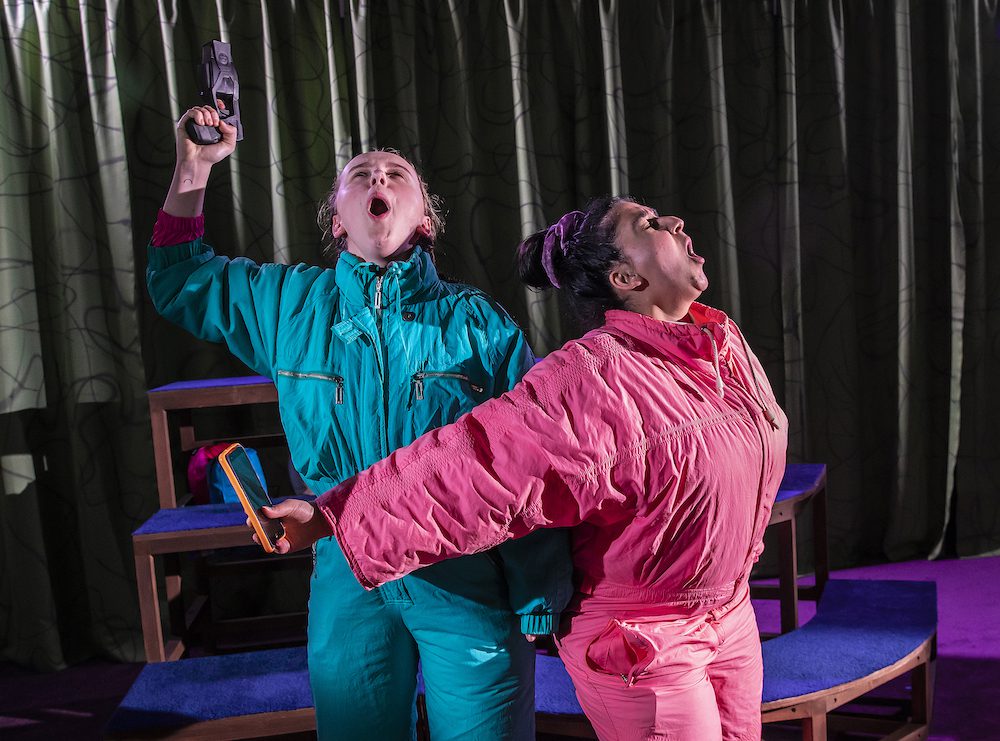SHEWOLVES is the story of two school girls who forge an unlikely friendship as they both seek to escape their lives. Lou (Harriet Waters) is a climate activist determined to follow in the footsteps of her heroine Greta Thunberg (whose look and style she has deliberately copied). Priya (Gurjot Dhaliwal) is a gobby, lively wannabe Instagram influencer. Both have tough home lives and it is in sharing these experiences that they find their bond.
Both actors embodied their characters perfectly. Both offer different interpretations of the brittle confidence of teenage girlhood. Priya in her manic self-promotion that belies a confidence that has been systematically undercut, Lou in an activism that while passionate is not always well directed and fully understood – by those she is protesting or by herself.
The writing is witty and produced genuine and consistent laughs while also portraying the humanity of the main characters and their struggle to make sense of a world that increasingly doesn’t see a place for them. I personally bridled a little at the repeated use of the sexist and ageist use of the term ‘Karen’, but on the other hand, it would absolutely not be out of place for young girls of that age to use it (I would gently suggest removing it from the opening, offstage audience instructions though).
There is a certain pace to shows that work on the Edinburgh fringe that doesn’t always translate when they transfer to a different context. The Edinburgh experience is about seeing four or five shows (at least) in a day as you cram as much into your expensive weekend as possible. Fringe pieces are rarely longer than an hour and their pacing exists to leave you with the strongest impression at the end rather than building a sense of momentum throughout.
It is in keeping this pacing, that I think the translation of the otherwise interesting and engaging SHEWOLVES falls down slightly. I see a lot of London-based theatre that has started its life in Edinburgh, but it is rare for me to see something that feels like it hasn’t been translated from that context to its new space, but simply lifted wholesale. As we made our way close to the end of the hour, I remember thinking that the show did not have enough time and space to resolve the action fully, and this was clear in the last ten minutes when the action moved at a speed the rest of the play had not. This felt jarring and a waste of the transfer to the more expansive context of Southwark Playhouse.
Ultimately, like much of the work that you see on the Edinburgh fringe, SHEWOLVES feels full of – as yet – undeveloped potential. There is a rich seam to be mined here, but it would have been good to see more growth between Edinburgh show to stand-alone theatre.

